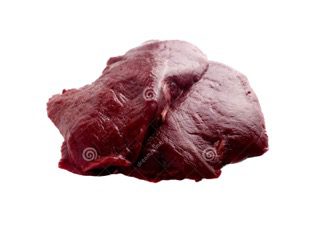

While deer liver purchased from a reputable supplier is safe for dogs to consume, liver from wild deer should be avoided due to the risk of fluke infestation. These parasites can cause serious infections in dogs, leading to coma and death.
Deer or venison liver is a great source of Vitamin A, which supports improved vision and a healthy immune system in dogs. It is also high in protein and essential minerals like zinc, iron, and selenium.
Liver from wild deer may be infested with flukes, and liver is also high in cholesterol. Excessive consumption of deer liver can lead to an accidental nutrient overdose.
To ensure the organ meat is free from parasites, source deer liver from a reliable supplier. For raw feeders, freezing the organ meat for a month before feeding it to pets can help reduce the risk of parasites. For dogs not on a raw diet, cook the venison liver and feed it in moderation. Commercial freeze-dried or dehydrated deer liver treats are also available for purchase.
Deer liver is a type of organ meat that is commonly fed to dogs. It is a good source of protein, vitamins, and minerals such as iron and vitamin A. The consumption of deer liver can help improve a dog's immune system, promote healthy skin and coat, and aid in digestion. However, there are some risks associated with feeding liver to dogs. Overconsumption of liver can lead to vitamin A toxicity, which can cause bone and joint pain, dehydration, and even death. It is important to feed liver in moderation and not as a regular part of a dog's diet. In extreme cases, if a dog has consumed too much liver, they may experience symptoms such as vomiting, diarrhea, and lethargy. It is important to seek veterinary care immediately if these symptoms occur. Two safer alternatives to deer liver are chicken or beef liver, which are lower in vitamin A. A serving idea for deer liver is to chop it up into small pieces and mix it into a dog's regular food.